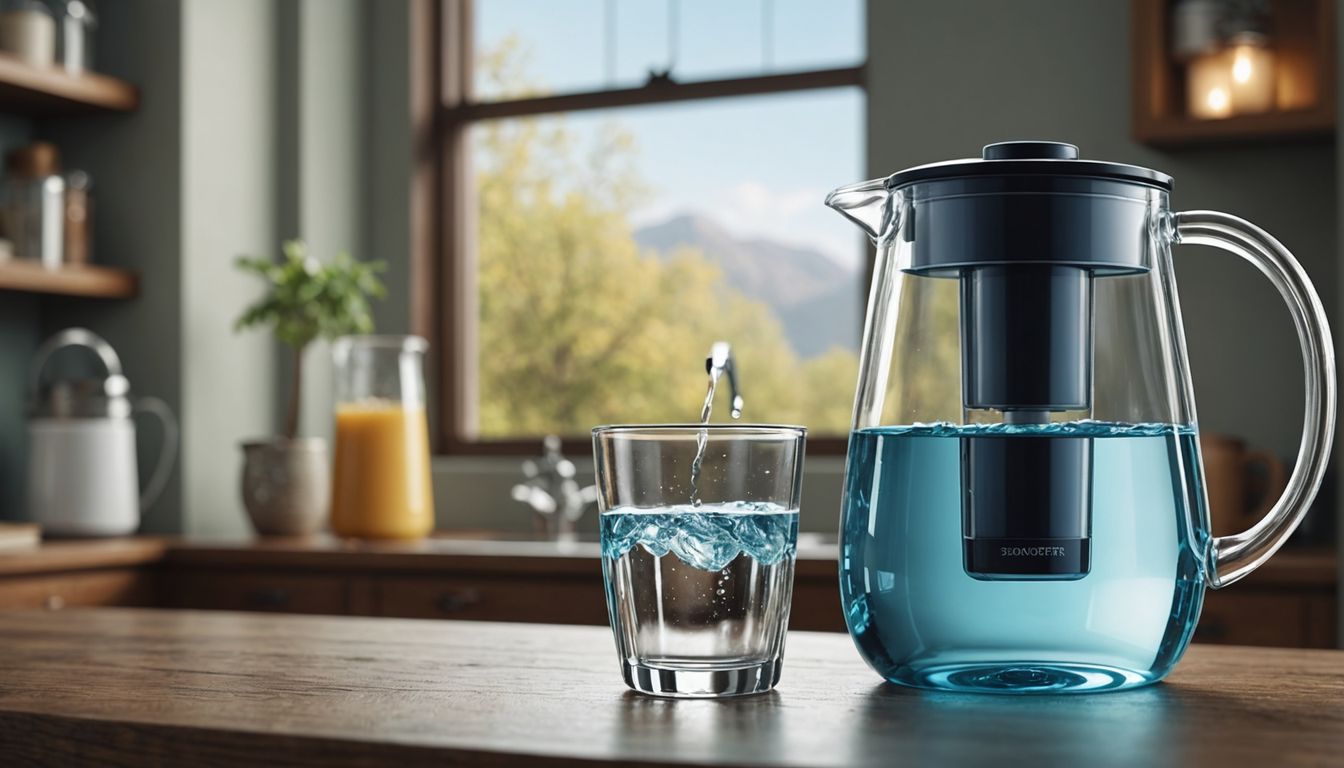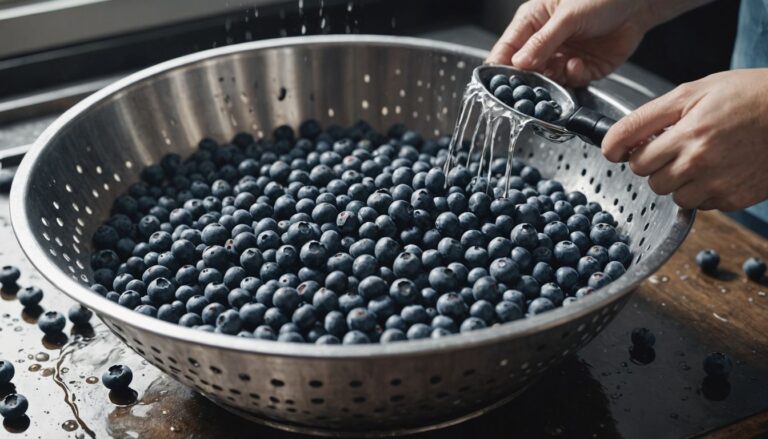Do Water Filters Remove Pesticides? Find Out Here!

Worried about pesticides in your tap water? You’re not alone. Many people are concerned about the safety of their drinking water, especially when it comes to harmful chemicals like pesticides.
This article will help you understand what pesticides are, how they end up in your water, and the best ways to remove them. Let’s dive in and find out how you can protect your health and enjoy clean, safe drinking water.
Key Takeaways
- Activated Carbon filters are highly effective at removing pesticides from tap water.
- Reverse osmosis systems can eliminate up to 99.9% of harmful contaminants, including pesticides.
- Regularly testing your tap water can help you identify the presence of pesticides.
- Government regulations set limits on pesticide levels in drinking water to protect public health.
- Alternative solutions like boiling water and using bottled water can also reduce pesticide levels.
Understanding Pesticides in Tap Water
What Are Pesticides?
Pesticides are chemicals used to kill or control pests, including insects, weeds, and fungi. They are commonly used in agriculture to protect crops, but they can also be found in homes and gardens. These chemicals can be harmful if they make their way into our drinking water.
How Do Pesticides Get Into Tap Water?
Pesticides can enter tap water through various routes. Rainwater can wash pesticides from fields into rivers and lakes, which are sources of our drinking water. Additionally, pesticides can seep into the ground and contaminate groundwater supplies. This means that even if you live far from a farm, your tap water could still be at risk.
Common Pesticides Found in Tap Water
Some pesticides are more commonly found in tap water than others. Here are a few you might encounter:
- Atrazine: Often used on corn crops, it can disrupt hormone function.
- Glyphosate: Known as Roundup, it’s widely used and can affect kidney and liver function.
- Chlorpyrifos: Used to kill insects, it can impact the nervous system.
It’s important to be aware of these common pesticides so you can take steps to protect your health.

How A New Piece Of Technology Provides The Drug Free Pain Relief You’ve Been Looking For
If you’re anything like me, you don’t want to use drugs or pills that you’re unsure about.
Health Risks of Pesticides in Drinking Water
Short-term Health Effects
When you drink water with pesticides, even in small amounts, it can mess with your health pretty quickly. You might feel sick to your stomach, get headaches, or even have trouble breathing. These symptoms can show up fast and can be really scary.
Long-term Health Effects
The real danger comes from drinking pesticide-contaminated water over a long time. This can lead to serious issues like cancer, liver damage, and problems with your nervous system. Kids are especially at risk because their bodies are still growing.
Vulnerable Populations
Some people are more at risk than others. Kids, pregnant women, and older adults need to be extra careful. Their bodies can’t handle the toxins as well, making them more likely to get sick from pesticides in water.
It’s super important to know what’s in your water, especially if you have young kids or older family members. Testing your water can help keep everyone safe.
How Effective Are Water Filters at Removing Pesticides?
Activated Carbon Filters
Activated carbon filters are superstars when it comes to removing pesticides from your tap water. They work by adsorbing contaminants, which means they attract and hold onto the bad stuff, including many pesticides. These filters can remove up to 95% or more of pesticides, making your water much safer to drink.
Reverse Osmosis Systems
Reverse osmosis (RO) systems are another excellent choice. They force water through a semipermeable membrane, leaving pesticides and other harmful substances behind. RO systems are incredibly effective, often removing 99.9% of pesticides and other contaminants. They usually combine multiple filtration methods to ensure your water is as clean as possible.
Distillation Methods
Distillation is a bit old-school but still effective. This method involves boiling water to produce steam, which is then condensed back into liquid form. The process leaves most contaminants, including pesticides, behind. While it’s not as popular as activated carbon or RO systems, it’s a reliable way to purify your water.
Choosing the right water filter can make a huge difference in the quality of your drinking water. Make sure to consider your specific needs and the types of contaminants you want to remove.
Choosing the Right Water Filter for Your Home
Factors to Consider
Picking the right water filter can feel like a big task, but it doesn’t have to be! First, think about what contaminants you need to remove. Are you dealing with pesticides, lead, or bacteria? Knowing this will help you choose the right filter. Also, consider the filter’s cost, how easy it is to install, and how often you’ll need to replace it.
Top Recommended Filters
Here are some top picks for water filters that can help you get rid of pesticides:
- Reverse Osmosis Systems: These are great for removing a wide range of contaminants, including pesticides. They can be a bit pricey but are very effective.
- Activated Carbon Filters: These are more affordable and can remove many pesticides and other chemicals. They are easy to install and maintain.
- Distillation Units: These are less common and usually a last resort. They can remove almost all contaminants but are slow and use a lot of energy.
Installation and Maintenance Tips
Once you’ve picked your filter, it’s time to set it up. Most filters come with easy-to-follow instructions. If you’re not handy, you might want to hire a professional. Don’t forget to change the filters regularly! This keeps your water clean and your filter working well.
Remember, no filter is perfect. Always check that your choice is certified by organizations like NSF International to ensure it meets safety standards.

How A New Piece Of Technology Provides The Drug Free Pain Relief You’ve Been Looking For
If you’re anything like me, you don’t want to use drugs or pills that you’re unsure about.
Testing Your Tap Water for Pesticides
DIY Testing Kits
Want to know if your tap water has pesticides? You can start with a DIY testing kit. These kits are easy to use and give you quick results. Just follow the instructions, and you’ll know what’s in your water in no time. They’re great for a first check, but remember, they might not be as accurate as professional tests.
Professional Water Testing Services
For a more thorough check, consider hiring a professional water testing service. These services use advanced methods to detect even tiny amounts of pesticides. It’s a bit more expensive, but the peace of mind is worth it, especially if you have kids or a vulnerable family member.
Interpreting Test Results
Once you have your test results, it’s time to understand what they mean. Look for the levels of different pesticides and compare them to safety standards. If any levels are too high, you might need to take action, like getting a better water filter or contacting local authorities.
Testing your water regularly helps ensure your family’s safety. Don’t wait for a problem to show up—be proactive!
Government Regulations and Standards
EPA Guidelines
The Environmental Protection Agency (EPA) sets the rules for how much of each pesticide can be in your tap water. They make sure the water is safe to drink by setting maximum contaminant levels (MCLs) for different pesticides. But if you use well water, the EPA doesn’t regulate it, so you’re on your own. The Federal Insecticide, Fungicide, and Rodenticide Act also helps by controlling how pesticides are made and used, but some still get into the water.
State Regulations
Each state can have its own rules about pesticides in water. Some states follow the EPA’s guidelines, while others have stricter rules. It’s a good idea to check what your state says about pesticide levels in drinking water.
International Standards
Different countries have their own rules for pesticides in water. For example, Europe has the Safe Drinking Water Directive, which sets limits for various pesticides. These rules can be different from the ones in the U.S., so if you travel, keep that in mind.
Knowing the rules and guidelines can help you make better choices about your drinking water. Always stay informed and check the latest updates from reliable sources.
Alternative Solutions to Reduce Pesticides in Water
Boiling Water
Boiling water is one of the simplest methods to reduce some contaminants. While it won’t remove pesticides completely, it can help reduce their concentration. Just bring your water to a rolling boil for at least one minute. Remember, boiling is not a foolproof method for pesticide removal.
Bottled Water Options
If you’re concerned about pesticides in your tap water, bottled water can be a convenient alternative. Look for brands that specifically mention pesticide testing and filtration. However, keep in mind that bottled water can be expensive and isn’t always environmentally friendly.
Natural Filtration Methods
Natural filtration methods, like using sand or charcoal, can also help reduce pesticide levels. These methods mimic the natural filtration process that occurs in the environment. While not as effective as commercial filters, they can be a good supplementary option.
It’s always a good idea to combine multiple methods for the best results. For instance, you could use a natural filtration method and then boil the water for added safety.

How A New Piece Of Technology Provides The Drug Free Pain Relief You’ve Been Looking For
If you’re anything like me, you don’t want to use drugs or pills that you’re unsure about.
Conclusion
In the end, getting rid of pesticides from your tap water is not as hard as it seems. With the right water filter, you can make sure your drinking water is safe and clean. Activated carbon filters are a great choice because they can remove most pesticides. Other options like reverse osmosis and distillation also work well. Remember, clean water is important for your health, so it’s worth investing in a good filter. Stay safe and enjoy your fresh, clean water!
Frequently Asked Questions
What is the best water filter to remove pesticides from tap water?
The good news is that pesticides can be removed from tap water with an affordable and easy-to-use water filter system. Activated Carbon filters are generally the most effective in removing pesticides thanks to the adsorption effect. EcoPro, EcoPro Compact, Essential, Ultra, PitcherPro, and BottlePro by TAPP Water all remove 95% or more of pesticides from tap water.
How can I remove pesticides from drinking water?
To get safe, quality drinking water for you and your family, installing a water filter is the way to go. The right water system can remove 99.9% of pesticides and other harmful contaminants, including disease-causing compounds like arsenic, lead, bacteria, and cysts.
Are water filters effective at removing pesticides?
Yes, the ability to reduce pesticides in tap water is independently verified by third-party labs and certifications. Our filters have been certified to remove over 14 pesticides and 12 herbicides and will remove substantially more.
What are some alternative solutions to remove pesticides from tap water?
Alternative solutions to remove pesticides from tap water include reverse osmosis and distillation.
How common are pesticides in tap water?
Over 90% of Americans have pesticides in their bodies. In a recent study by the Center for Disease Control and Prevention, they found 44 different types of pesticides in public water supplies.
What are some affordable solutions to remove pesticides from tap water?
For just a few hundred dollars, you can install a filtration device that removes 99.9% of harmful contaminants, including pesticides. EcoPro, EcoPro Compact, and PitcherPro are affordable, sustainable, and simple solutions to remove pesticides from your tap water.






